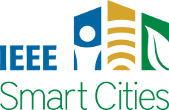Assistive Aged Care in Smart Cities
Written by Bernard Fong
The global population is undergoing a significant demographic shift, with the rapidly growing elderly cohort rising in prominence as a demographic group. As this trend continues, the challenges of providing adequate care and support for the elderly become more pronounced. Smart cities, characterized by the integration of advanced technologies into urban infrastructure, offer a unique approach to addressing these challenges through the implementation of assistive elder care technology.
This August 2023 issue covers the broad array of topics within elder care in smart cities. The global population continues to age as technology rapidly advances, revealing a growing need to leverage smart city infrastructure and innovative assistive technologies in order to improve the quality of life for elderly populations in smart cities. This issue of our Smart Cities eNewsletter features three articles that cover applied research and practical solutions related to elder care and assistive technology in smart cities. The primary aim of this special issue is to take an in-depth look at assistive technology enhancing the well-being and independence of elderly individuals in smart cities. This issue also aims to investigate the integration of smart city infrastructure with aged care systems to provide personalized and efficient care [1].
Smart cities are urban areas that leverage data-driven technologies to improve various aspects of city life, including transportation [2], energy efficiency [3], telecommunications [4], and healthcare [5]. These cities incorporate the Internet of Things (IoT), artificial intelligence (AI), and other innovative technologies to create a connected and safe environment [6]. One critical aspect of smart cities is the integration of technology to meet the evolving needs of an aging population. Assistive aged care technology refers to a wide range of devices, applications, and systems designed to support the elderly in their daily lives. These technologies aim to enhance their independence, safety, and overall well-being. Examples of such technology include:
- Smart Nursing Home Automation: Aged care facilities equipped with sensors and automation systems can monitor the activities of elderly residents. These systems can adjust lighting, temperature, and security settings based on individual preferences and health conditions [7].
- Wearable Devices: Wearable devices like smartwatches can track vital signs, physical activity, and sleep patterns. This data can be analyzed to detect anomalies and provide early warnings about potential health issues [8].
- Telehealth and Telemedicine: Remote healthcare services enable elderly individuals to consult doctors and specialists without leaving their homes. This is especially crucial for those with mobility limitations or those living in remote areas [9].
In addressing these important application areas, featured articles cover sensing systems that detect falls and other emergencies and automatically alert caregivers or emergency services. The detection of health issues through wearable devices and remote monitoring can lead to proactive interventions, potentially reducing the need for expensive hospitalizations. This, along with the rapid response facilitated by automatic alerting, can significantly reduce the consequences of accidents. These systems, along with blood oxygen detectors that support independence and safety, and IoT for the integration of assistive elder care technology in smart cities, enable the elderly to maintain a higher quality of life as they age. However, the implementation of assistive elder care technology in smart cities comes with challenges. Privacy concerns, digital literacy among the elderly, and the potential for technology to replace human interaction are some of the issues that must be carefully addressed.
As the global population continues to age, the integration of assistive aged care technology in smart cities emerges as a transformative solution. By leveraging the power of IoT, AI, and other advanced technologies, smart cities can provide a comprehensive support system for the elderly, enhancing their well-being, promoting independence, and ensuring a higher quality of life. It is imperative that policymakers, technologists, and communities work together in addressing challenges in order to create a future where technology contributes to the holistic care of the elderly in the urban landscape.
References
- Suryadevara, N. K., & Mukhopadhyay, S. C. (2014). Determining wellness through an ambient assisted living environment. IEEE Intelligent Systems, 29(3), 30-37.
- Lv, Z., Qiao, L., Cai, K., & Wang, Q. (2020). Big data analysis technology for electric vehicle networks in smart cities. IEEE Transactions on Intelligent Transportation Systems, 22(3), 1807-1816.
- Ji, X., Dong, Z., Han, Y., Lai, C. S., Zhou, G., & Qi, D. (2023). EMSN: An Energy-Efficient Memristive Sequencer Network for Human Emotion Classification in Mental Health Monitoring. IEEE Transactions on Consumer Electronics (Early Access)
- Yu, M. (2022). Construction of regional intelligent transportation system in smart city road network via 5G network. IEEE Transactions on Intelligent Transportation Systems, 24(2), 2208-2216.
- Lv, Z., Chen, D., & Lv, H. (2022). Smart city construction and management by digital twins and BIM big data in COVID-19 scenario. ACM Transactions on Multimedia Computing, Communications, and Applications, 18(2s), 1-21.
- Mohammadi, M., & Al-Fuqaha, A. (2018). Enabling cognitive smart cities using big data and machine learning: Approaches and challenges. IEEE Communications Magazine, 56(2), 94-101.
- Fong, B., Fong, A., Hong, G., & Tsang, K. F. (2022). Optimization of power usage in a smart nursing home environment. IEEE Transactions on Industry Applications, 59(1), 38-46.
- Lv, Z., Yu, Z., Xie, S., & Alamri, A. (2022). Deep learning-based smart predictive evaluation for interactive multimedia-enabled smart healthcare. ACM Transactions on Multimedia Computing, Communications, and Applications, 18(1s), 1-20.
- Fong, B., Fong, A. C. M., & Li, C. K. (2020). Telemedicine technologies: information technologies in medicine and digital health. John Wiley & Sons.
This article was edited by Bernard Fong.
To view all articles in this issue, please go to August 2023 eNewsletter. For a downloadable copy, please visit the IEEE Smart Cities Resource Center.

To have the eNewsletter delivered monthly to your inbox, join the IEEE Smart Cities Community.
Past Issues
To view archived articles, and issues, which deliver rich insight into the forces shaping the future of the smart cities. Older eNewsletter can be found here. To download full issues, visit the publications section of the IEEE Smart Cities Resource Center.



